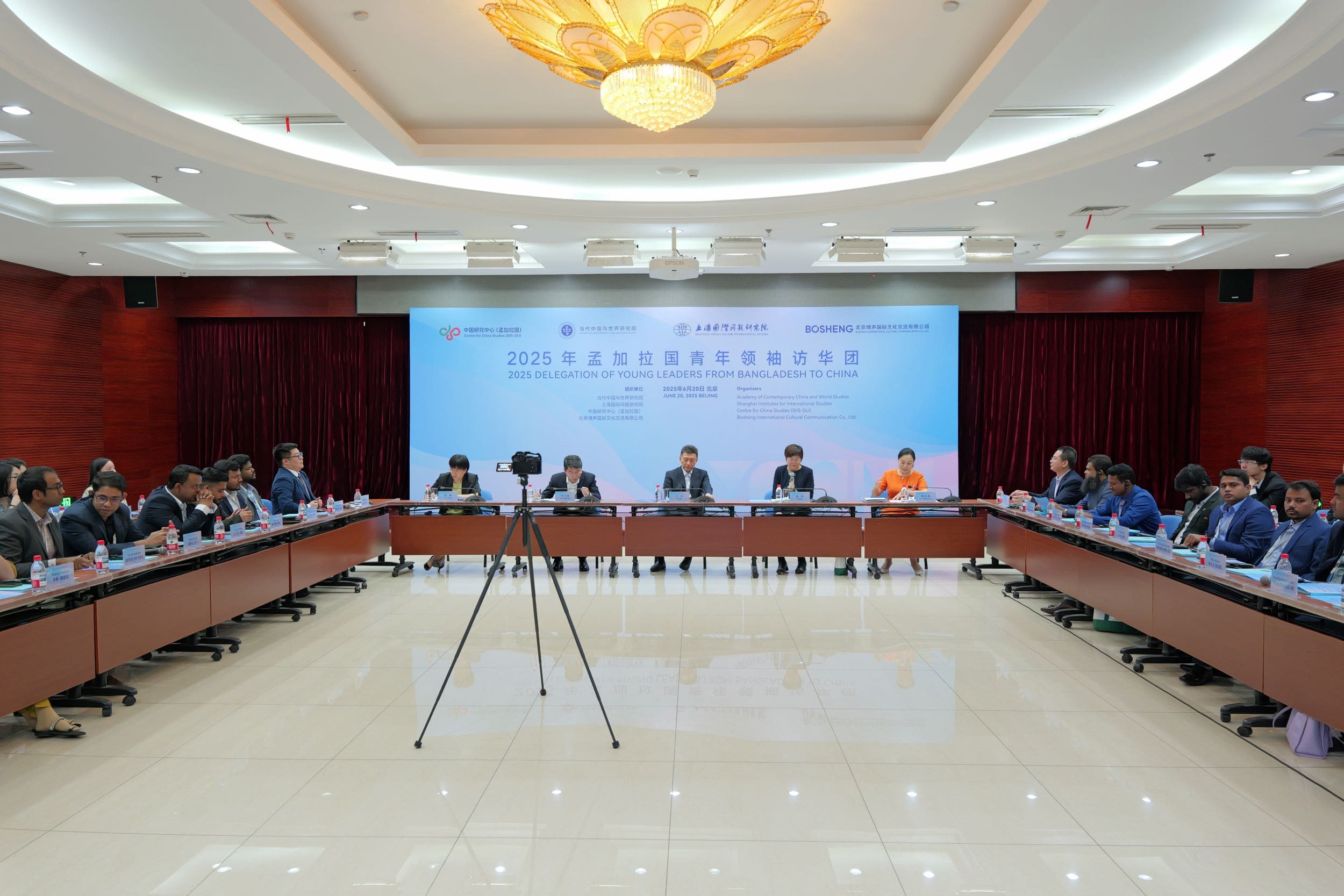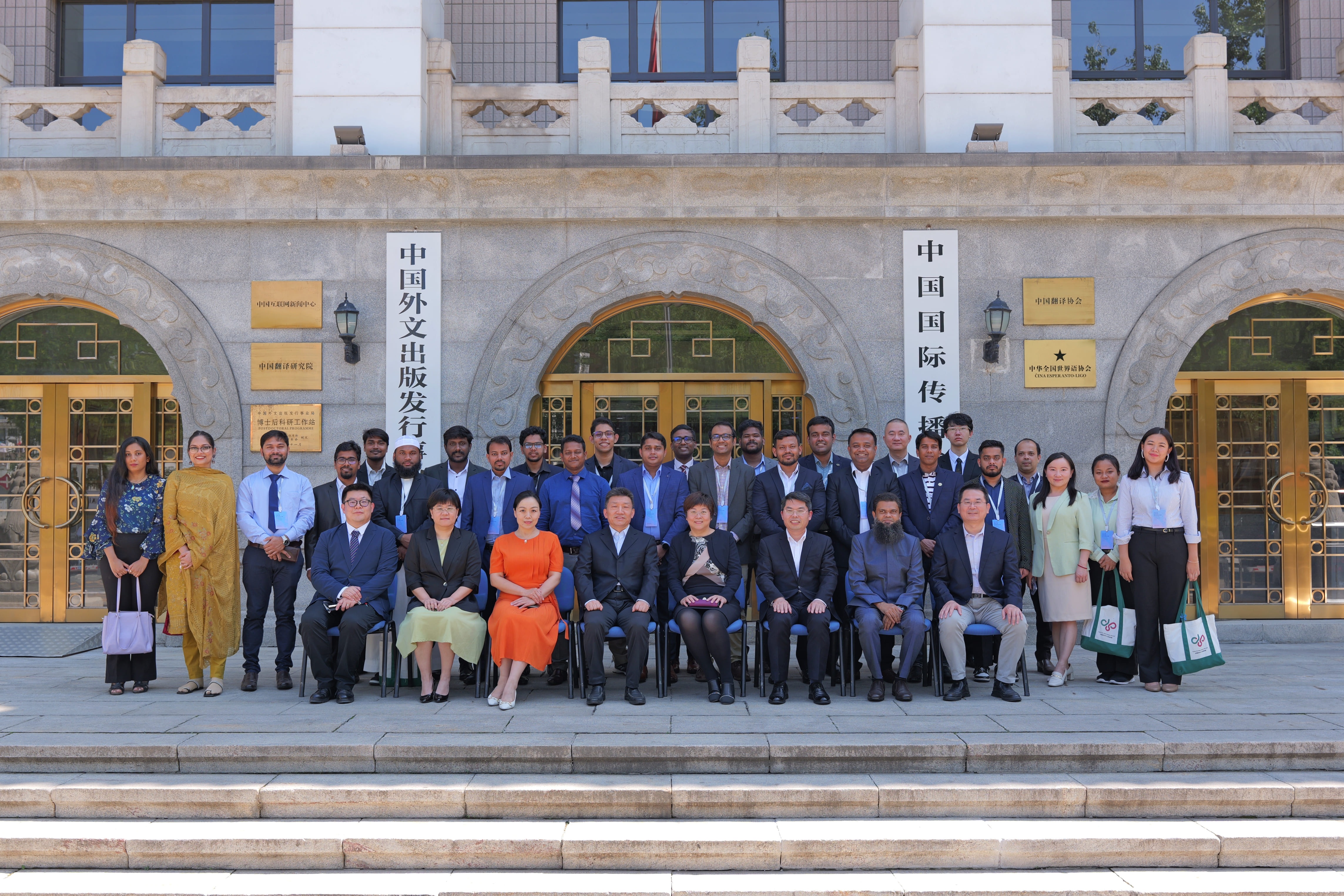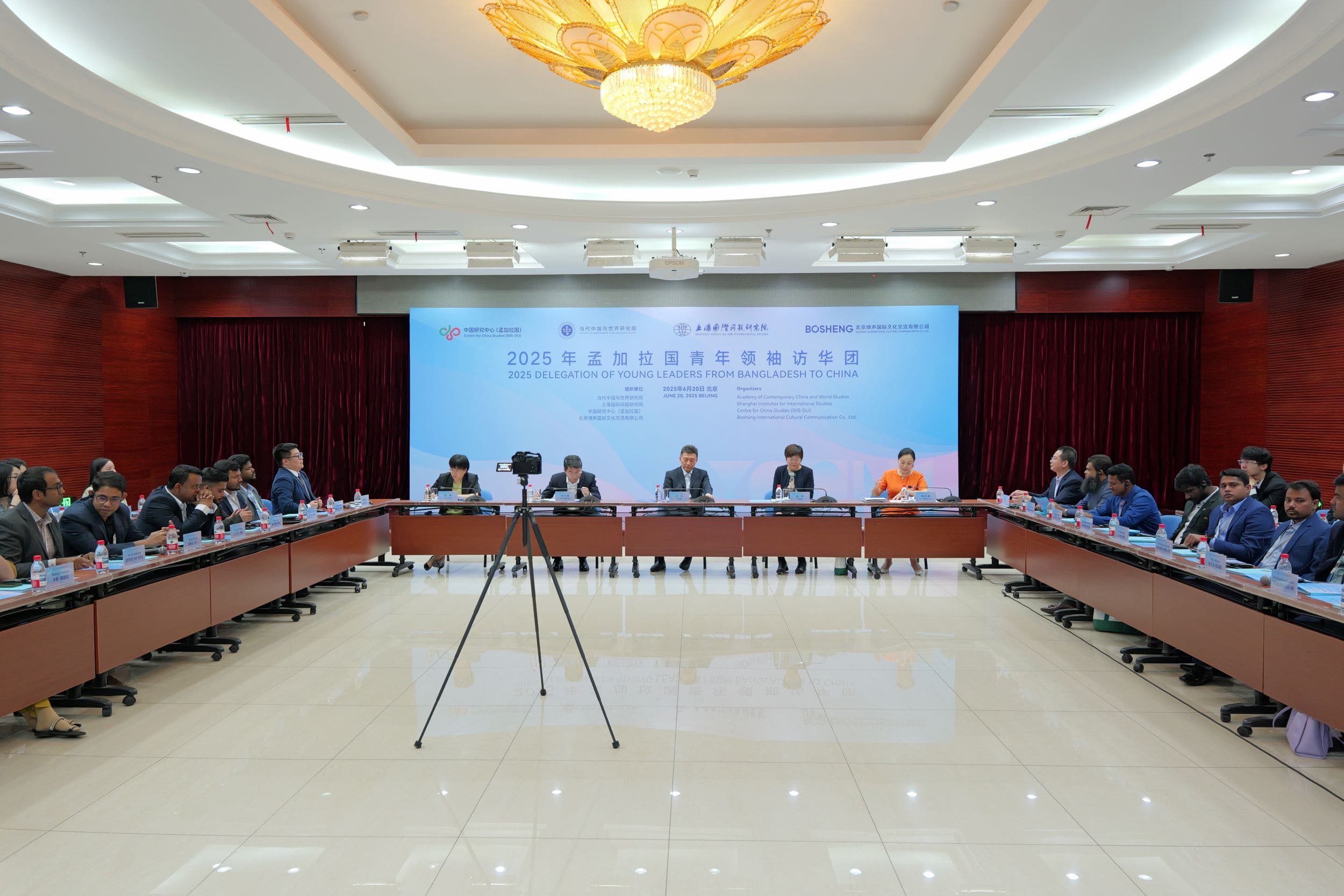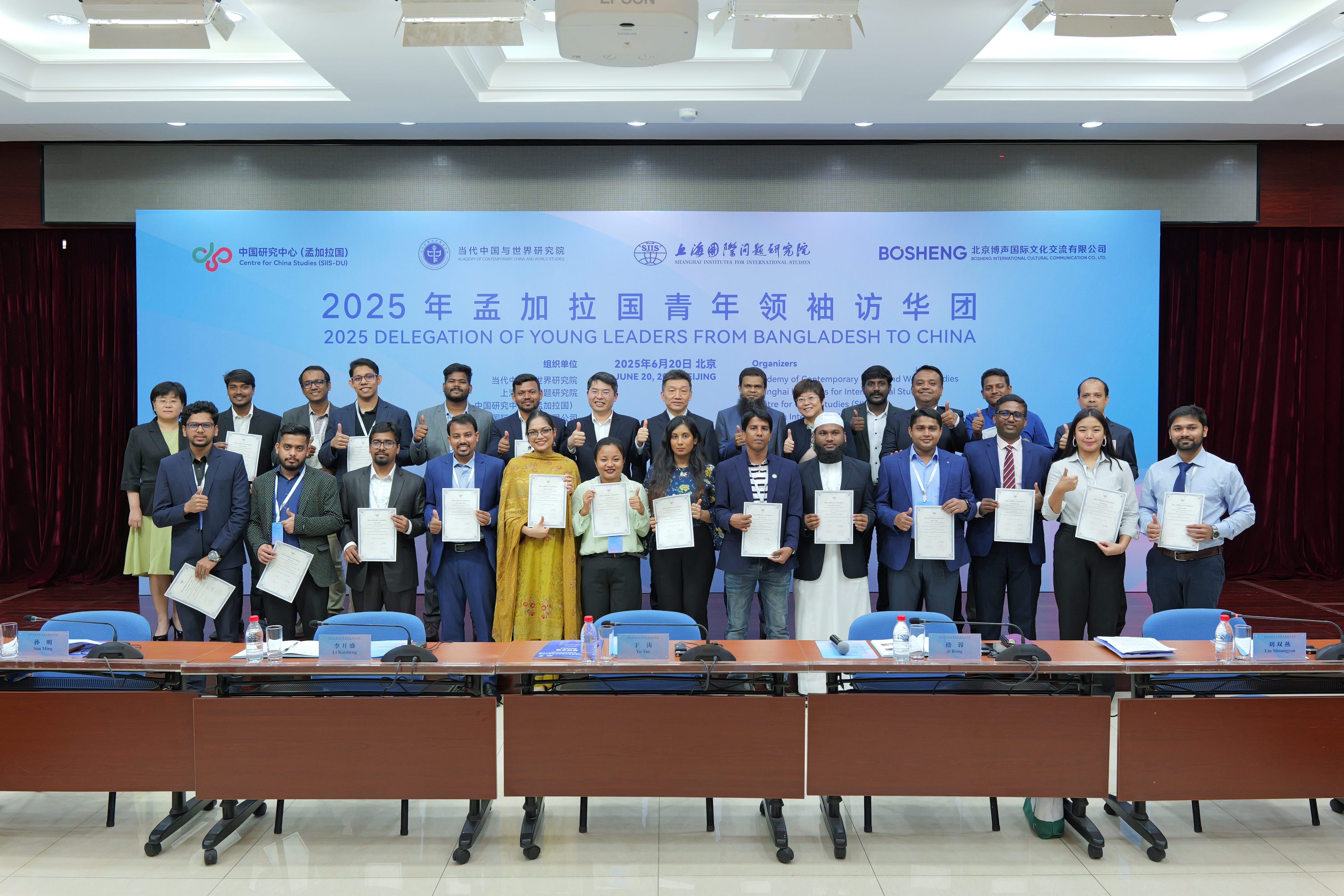
On the afternoon of June 20, the closing ceremony for the 2025 Delegation of Young Leaders from Bangladesh to China was successfully held in Beijing. Yu Tao, Vice President of China International Communications Group (CICG), Ji Rong, Counsellor of the Department of Asian Affairs of the Ministry of Foreign Affairs, Li Kaisheng, Vice President of the Shanghai Institutes for International Studies (SIIS), and Sun Ming, Vice President of the Academy of Contemporary China and World Studies (ACCWS), attended the event and jointly presented completion certificates to delegation members. The ceremony was moderated by Liu Shuangyan, Director of the International Cooperation Department of CICG.

CICG Vice President Yu Tao delivered a speech, noting that China and Bangladesh share many common goals as they are both important members of the Global South. Regarding future bilateral cooperation, he proposed three suggestions: First, learn from each other’s governance experience and jointly pursue Global South development. By conducting joint research and regular people-to-people exchanges, we can promote deeper interactions between Chinese and Bangladeshi professionals in education, culture, academia and research. Second, deepen cooperation on country studies and pool the wisdom of China and Bangladesh. CICG will continue supporting ACCWS’s participation in co-building the Centre for China Studies, leveraging think tank advantages and resource networks to strengthen exchanges and collaboration with Bangladeshi academic institutions and think tanks. Together, both sides should deepen country studies, explore new models and pathways for bilateral cooperation, and develop branded exchange projects. Third, strengthen joint international communication to shape China and Bangladesh’s global image. CICG will enhance collaboration with Bangladeshi institutions through platforms like the China Book Center and Centre for China Studies, utilizing resources to help shape a positive image for Global South countries and amplify the international discourse power of developing nations.

During the discussions, delegation members shared insights from their visit. They widely acknowledged being deeply impressed by China’s achievements in economic development, national governance and urban construction, technological innovation, environmental protection, public services and digital infrastructure, cultural preservation, and green energy. They expressed admiration for the Chinese people’s hardworking spirit and strong self-discipline. As the Chinese saying goes, “teaching fishing is better than giving fish.” They looked forward to enhancing Bangladesh-China exchanges in areas like state governance, artificial intelligence, agricultural development, environmental protection, clean energy, and joint research. They also hoped for greater Chinese support in Bangladesh’s economic development and infrastructure building. Liu Zongyi, Director of the Center for South Asian Studies of SIIS and Director of the Centre for China Studies (Bangladesh), and Zhang Jiuan, Director of the Research Management and International Cooperation Department of ACCWS, provided commentary on the delegates’ remarks.

Concluding speeches were delivered by Head of the Delegation Professor MD Rakibul Hoque from University of Dhaka, SIIS Vice-President Li Kaisheng, and ACCWS Vice President Sun Ming.
Professor Hoque expressed sincere gratitude to Chinese organizers and hosts on behalf of the delegation. He described the visit as highly significant for helping members better understand China’s history and its people. The program highlighted the importance of people-to-people exchanges, demonstrating how youth can unite amid complex global challenges. He looked forward to more similar exchange opportunities for young people from both countries in the future.
SIIS Vice-President Li Kaisheng pointed out that while the Delegation visited Guangzhou, Shanghai, and Beijing, which are China’s most developed regions, the vast central and western areas also merit exploration to understand China in a more comprehensive and dynamic way. As both countries pursue development goals, mutual learning and knowledge-sharing should be strengthened, with youth serving as bridges to advance bilateral cooperation, he said. Bangladesh, as a populous nation, would actively explore its own development model to achieve political stability and sustainable long-term growth.
ACCWS Vice President Sun Ming proposed constructive steps for future collaborations: First, youth should act as envoys to bridge communication between both nations. Second, a sustainable knowledge-sharing platform should be established for joint research and field studies. Third, focusing on broader horizons, young talent should embrace emerging trends like AI, clean energy, as well as regional and global governance, and make their own contributions.
Xu Xiaoxi, Director of the Cultural Exchange Department of CICG, Zhu Shicheng, Executive Deputy Director of the Centre for China Studies, and Dr. Li Hongmei, Research Fellow of the Center for South Asian Studies of SIIS, also attended the ceremony.
